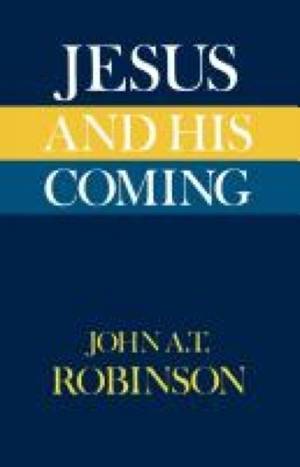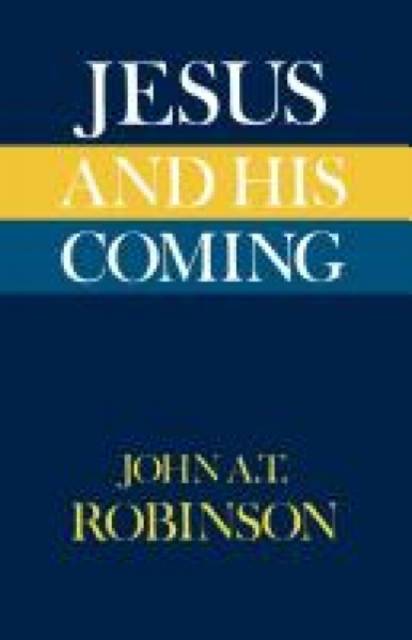
Je cadeautjes zeker op tijd in huis hebben voor de feestdagen? Kom langs in onze winkels en vind het perfecte geschenk!
- Afhalen na 1 uur in een winkel met voorraad
- Gratis thuislevering in België vanaf € 30
- Ruim aanbod met 7 miljoen producten
Je cadeautjes zeker op tijd in huis hebben voor de feestdagen? Kom langs in onze winkels en vind het perfecte geschenk!
- Afhalen na 1 uur in een winkel met voorraad
- Gratis thuislevering in België vanaf € 30
- Ruim aanbod met 7 miljoen producten
Zoeken
Omschrijving
In this controversial study, first published in l957. Dr Robinson looked for the origins of the doctrine of the Second Coming in the belief of the early church. His conclusion, that the early church may well have misinterpreted the original teaching of Jesus on the issue, was based on a careful and thorough examination of the New Testament material. In his preface to this reissue, he writes: In the quarter of a century since I worked on the material I am not persuaded that the thesis of the hook has lost its importance or its credibility. How and why the doctrine of the Parousia or Second Coming of Christ emerged in the thinking of the earliest Christian Communities remains of vital significance as we continue to wrestle today with how we can re-express it theologically, apply it politically, communicate it pastorally or incorporate it liturgically. that part of Christian teaching which asserts that Christ has to come into everything would seem on the it face of it to he the easiest to make relevant. Yet how much of its traditional formulation rests on a mistake, or represents a myth we can scarcely make our own? Until we understand what in that primordial explosion of truth which marked the first decades of the Christian movement caused it to he thrown up. what positive insights it embodied - and. I would say, distorted - we shall not be free to proclaim it with conviction or to apply it with discernment.'
Specificaties
Betrokkenen
- Auteur(s):
- Uitgeverij:
Inhoud
- Aantal bladzijden:
- 192
- Taal:
- Engels
Eigenschappen
- Productcode (EAN):
- 9780334007579
- Verschijningsdatum:
- 9/10/2012
- Uitvoering:
- Paperback
- Formaat:
- Trade paperback (VS)
- Afmetingen:
- 140 mm x 216 mm
- Gewicht:
- 231 g

Alleen bij Standaard Boekhandel
+ 97 punten op je klantenkaart van Standaard Boekhandel
Beoordelingen
We publiceren alleen reviews die voldoen aan de voorwaarden voor reviews. Bekijk onze voorwaarden voor reviews.









